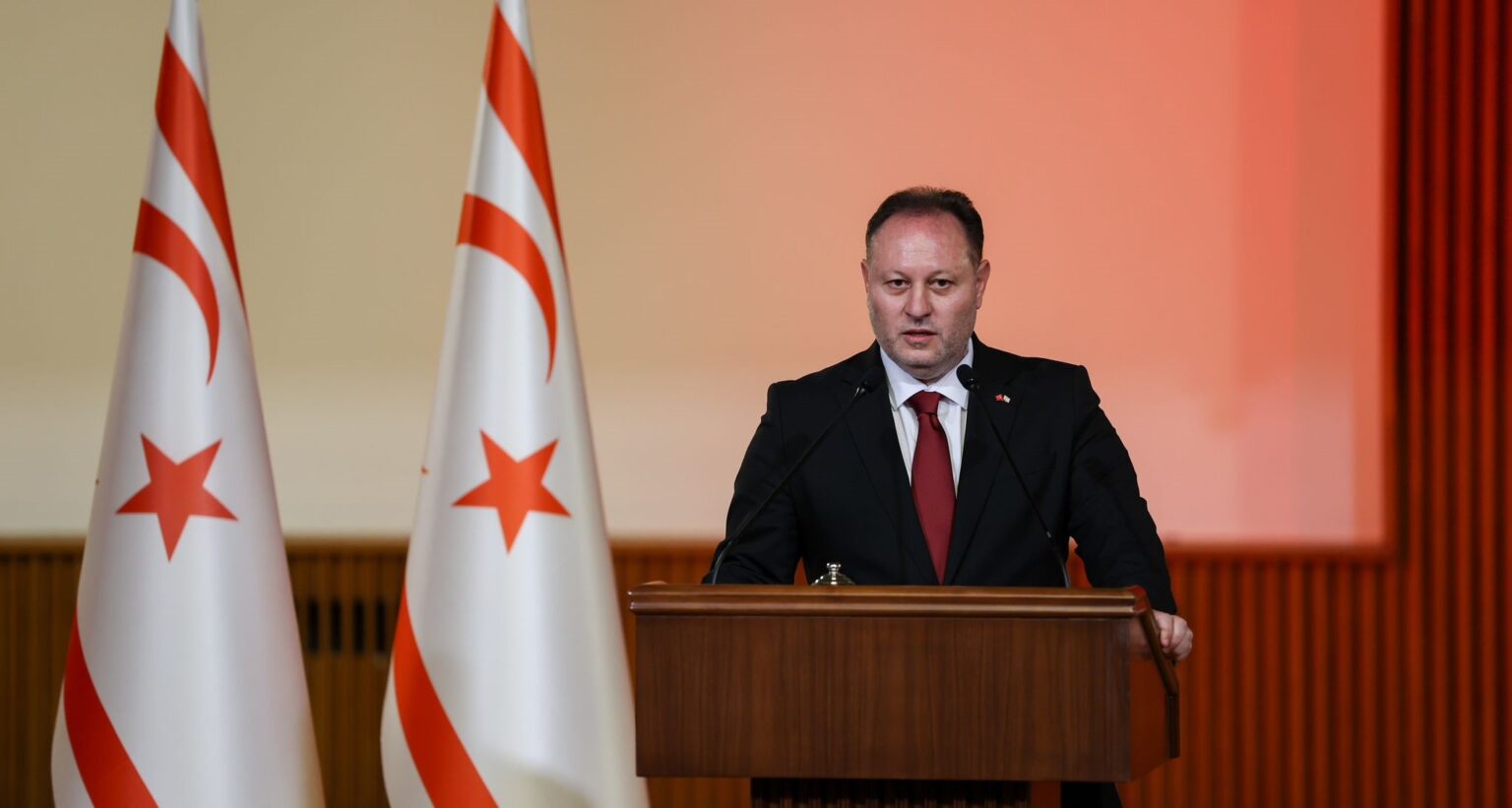
The Speaker of the Republic’s Assembly Ziya Öztürkler has responded to Greek Cypriot leader Nikos Christodoulides’ recent remarks in the US asserting that the rightful interlocutor for such issues is the Turkish Republic of Northern Cyprus and President Ersin Tatar—not Türkiye.
In a written statement, Öztürkler criticized Christodoulides’ approach as misguided, emphasizing the need for direct engagement between the two Cypriot communities.
Appearing on Hakikat Gazetesi Web TV, the Speaker of the TRNC Parliament Ziya Öztürkler also responded to Greek Cypriot House President Annita Dimitriou’s claim that “we’ll either go without water or remain dependent on Türkiye,” describing it as an unfortunate and inappropriate comment.
“Türkiye is a major regional power and motherland,” Öztürkler said, highlighting the importance of the ‘Project of the Century,’ which brought freshwater to the TRNC.
Recalling President Erdoğan’s reference to this supply as ‘Peace Water,’ Öztürkler underlined the urgency of regional cooperation in the face of the global climate crisis.
He called for joint Turkish Cypriot–Greek Cypriot efforts on shared challenges like electricity and water, saying, “We live on the same island. We must cooperate.”
Öztürkler reiterated that cooperation on water and electricity should be approached from a humanitarian perspective. He reminded viewers that leaders from both communities previously held discussions in Geneva, suggesting that strategic resources must transcend politics.
He also criticized slogans used during EOKA celebrations in the South and warned against forgetting the Turkish Cypriot struggle. Öztürkler said that Greek Cypriot and Greek policies still view Cyprus as a “Hellenic island,” adding that any call for the withdrawal of Turkish troops is unrealistic.
Turning to domestic issues, Öztürkler spoke about the social housing project in Güzelyurt. Reflecting on reforms made during his term as Interior Minister in 2022, he noted that the property tax on foreign-owned real estate was raised from 6% to 12%.
He stated that 3% of the revenue now goes to the Immovable Property Commission and 3% to social housing projects, aiming to make home ownership more accessible and ensure the sustainability of these initiatives.